How do you choose a permaculture design course?
At Cincinnati Permaculture Institute, there are a few different ways you can complete a permaculture design course for certification. We’ve developed our courses to be highly locally focused, giving anyone in this region the opportunity to study permaculture as it is applied right in their backyard, without taking weeks off of work or traveling around the world.
No matter which one of our courses you choose, you are getting 80+ hours of instruction on the core principles and design methodologies of permaculture, as put forth by Bill Mollison and Dave Holmgren, and the opportunity to practice your new skills with a design project. Each cohort takes on its own character, influenced by the diversity of knowledge, experience and passion among our students. Our students come from a variety of backgrounds: Master Gardeners to never-gardeners, teachers and recent graduates, artists and writers, community organizers and faith leaders, engineers and inventors, herbalists and naturalists — every niche of the ecosystem!
CPI Yearlong Permaculture Design Course
The Yearlong Permaculture Design Course is our flagship course, spreading the permaculture curriculum across all four seasons with host sites spanning the region.
The class begins each fall in November with a full weekend of immersive introduction. We then skip December for the holidays and reconvene in the New Year for the deep dive. Each class introduces different topics and aspects of permaculture, matched to the features of the site that’s hosting us, from natural and ecological fundamentals to technical skills for designing around various landscape challenges.
The class is very experiential: you’ll get to touch, taste, smell, and listen as our site hosts take us on walking tours of their property, and introduce you to specialties like wildcrafting and fermentation, raising small animals, planning a market garden, or using solar and renewable energy (and so much more). In between classes, you’ll be sent videos, slides, articles and other resources to supplement your learning.
The Group Design Project is a central feature and a requirement for certification. By the midway point, we’ll have worked together as a group to nominate a handful of local properties that would be well suited to a permaculture design, and divided into small groups to begin collaborating on each site. Time is provided in class for design groups to meet and work on their projects, and some work is completed outside of class too, all culminating in a presentation on the final day.
Helpful to know: Unless weather is extreme, we typically hold class rain or shine. The sites we visit feature a variety of terrain and facilities, and usually at least one hour of class is spent on foot or walking. Many are private homes that may lack accessibility features such as ramps and restrooms. Some are fairly remote and have us driving or parking on gravel and grass. If you have concerns about mobility, hearing, transportation, or any other accessibility needs, please reach out to us for a discussion of how we might be able to accommodate you.
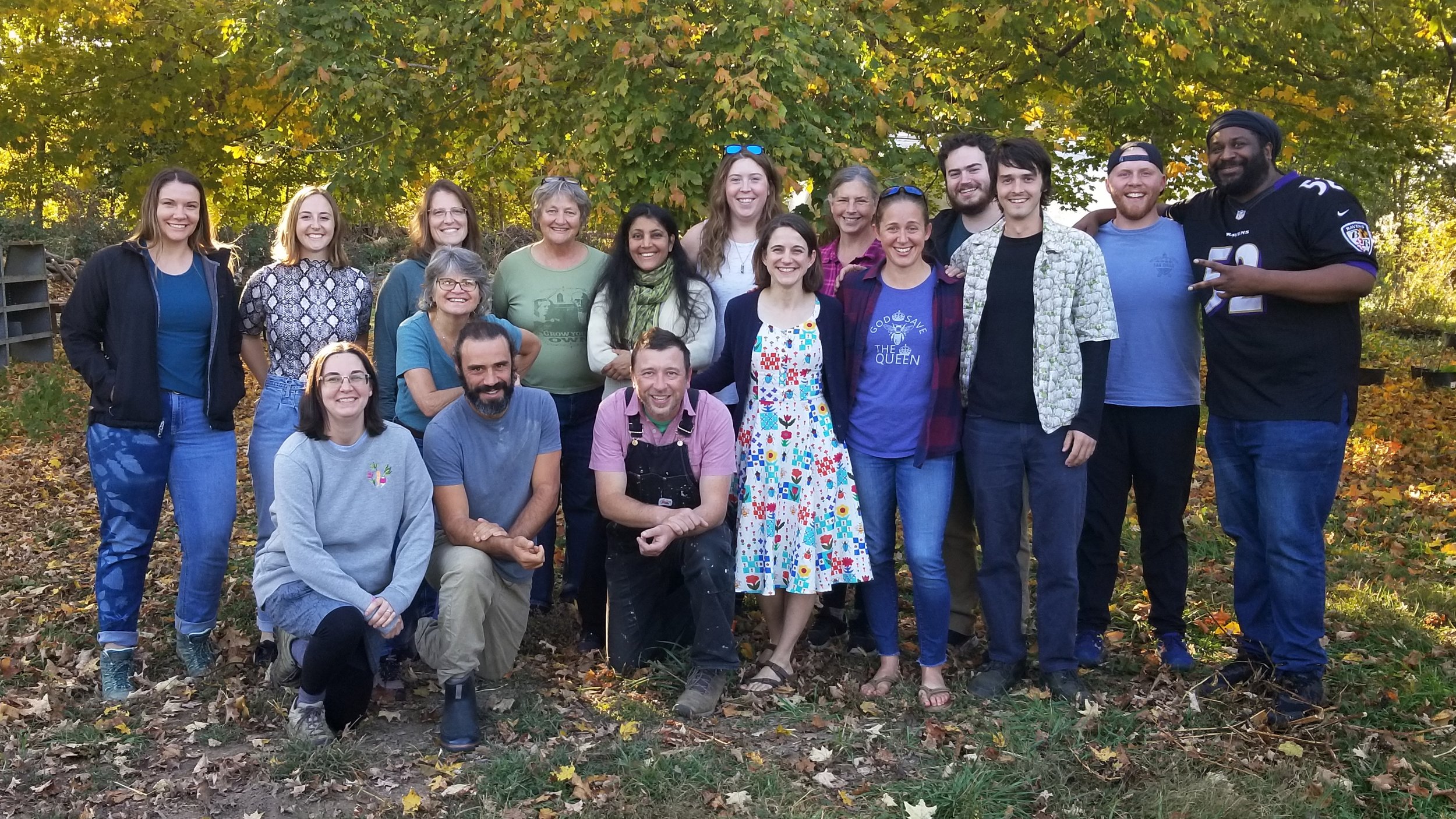

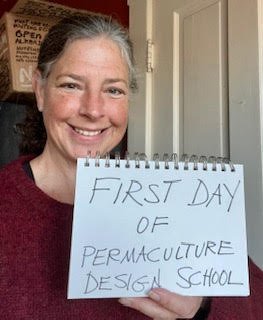

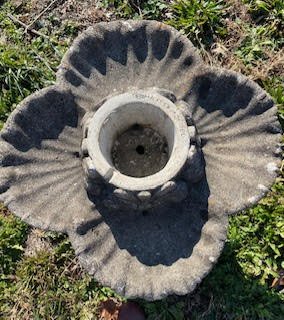
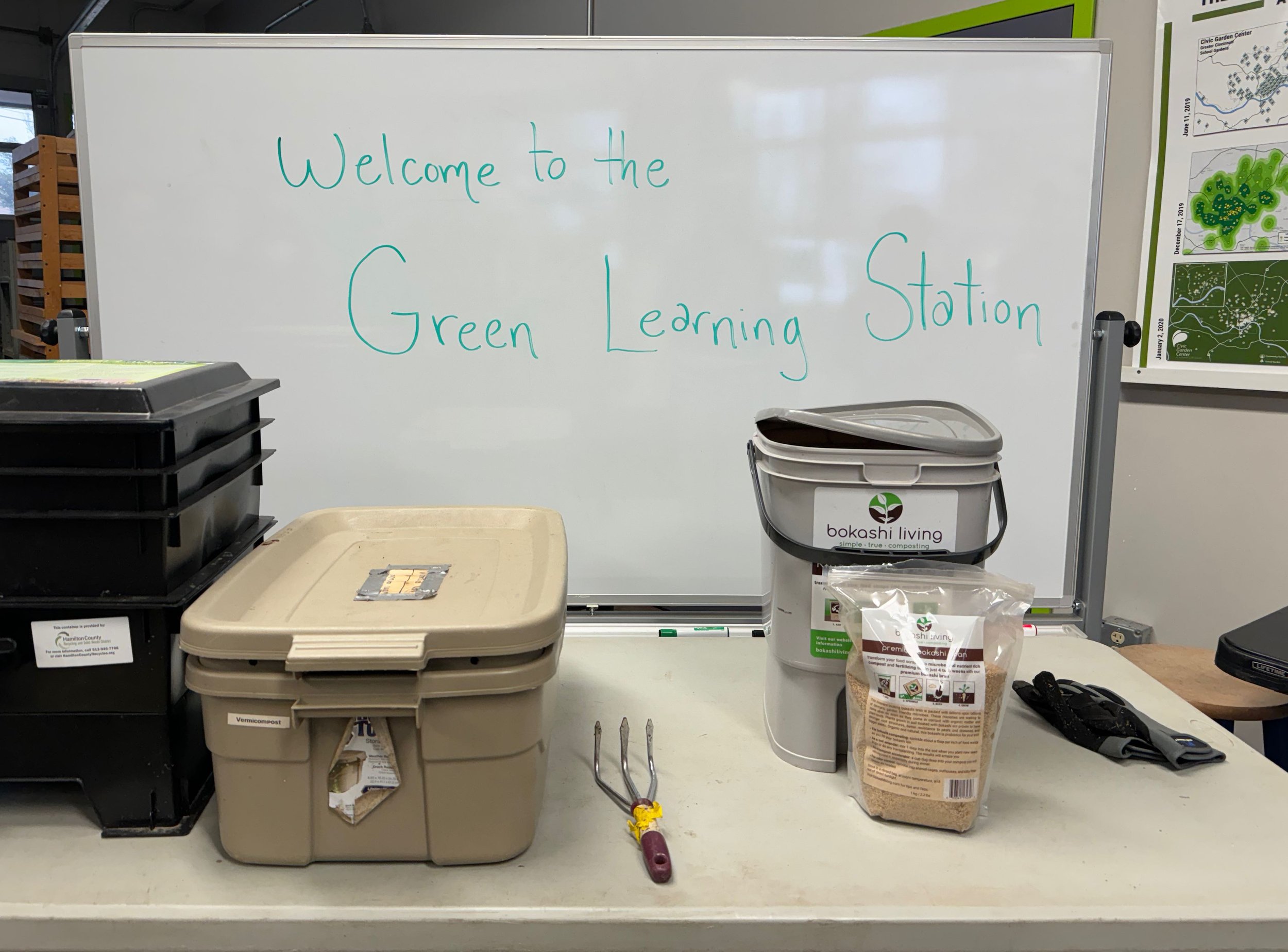
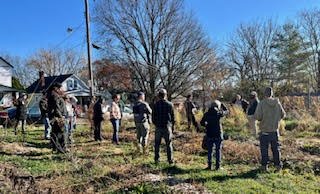
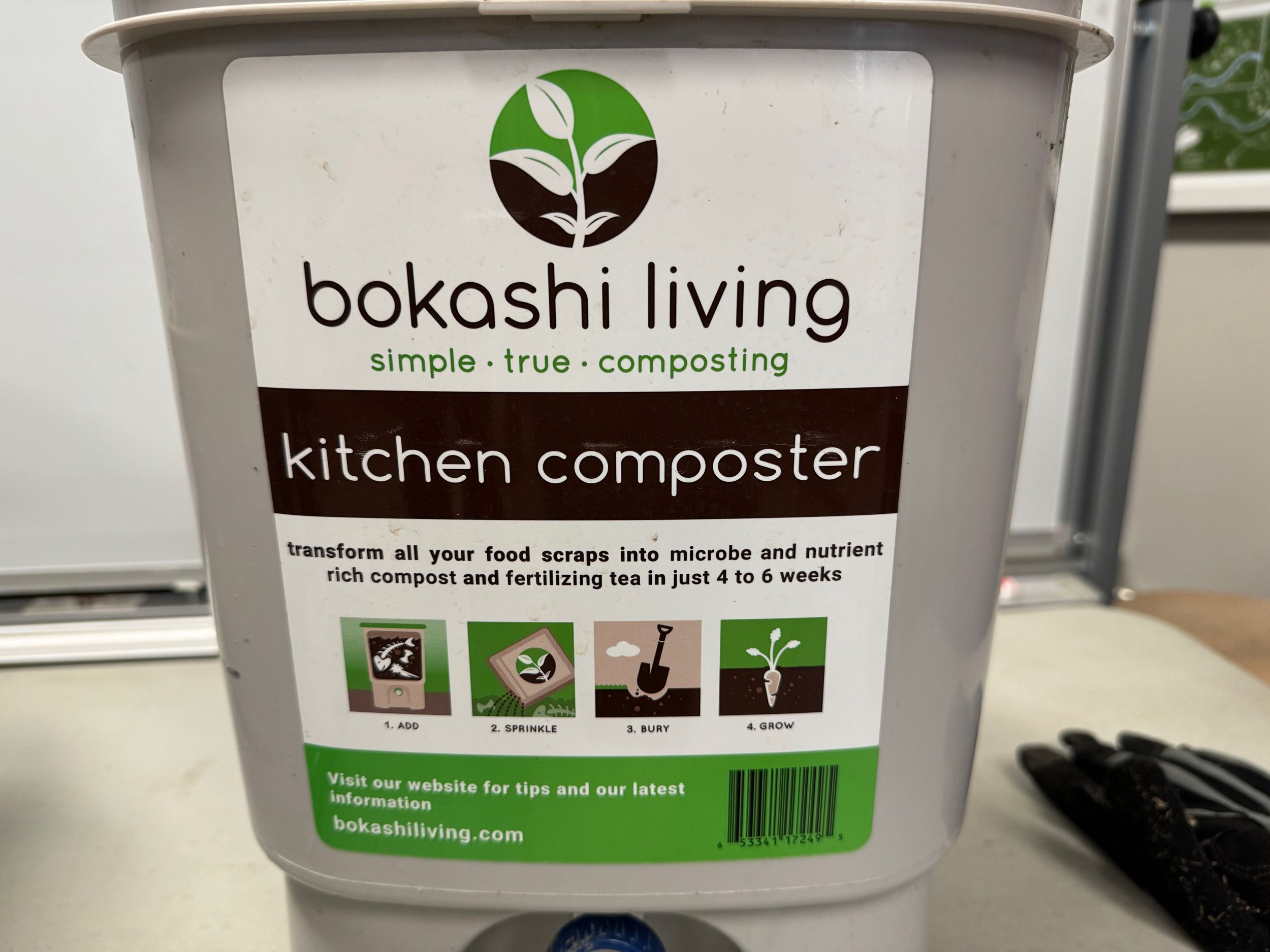
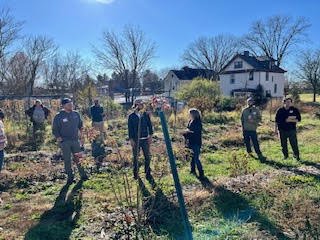
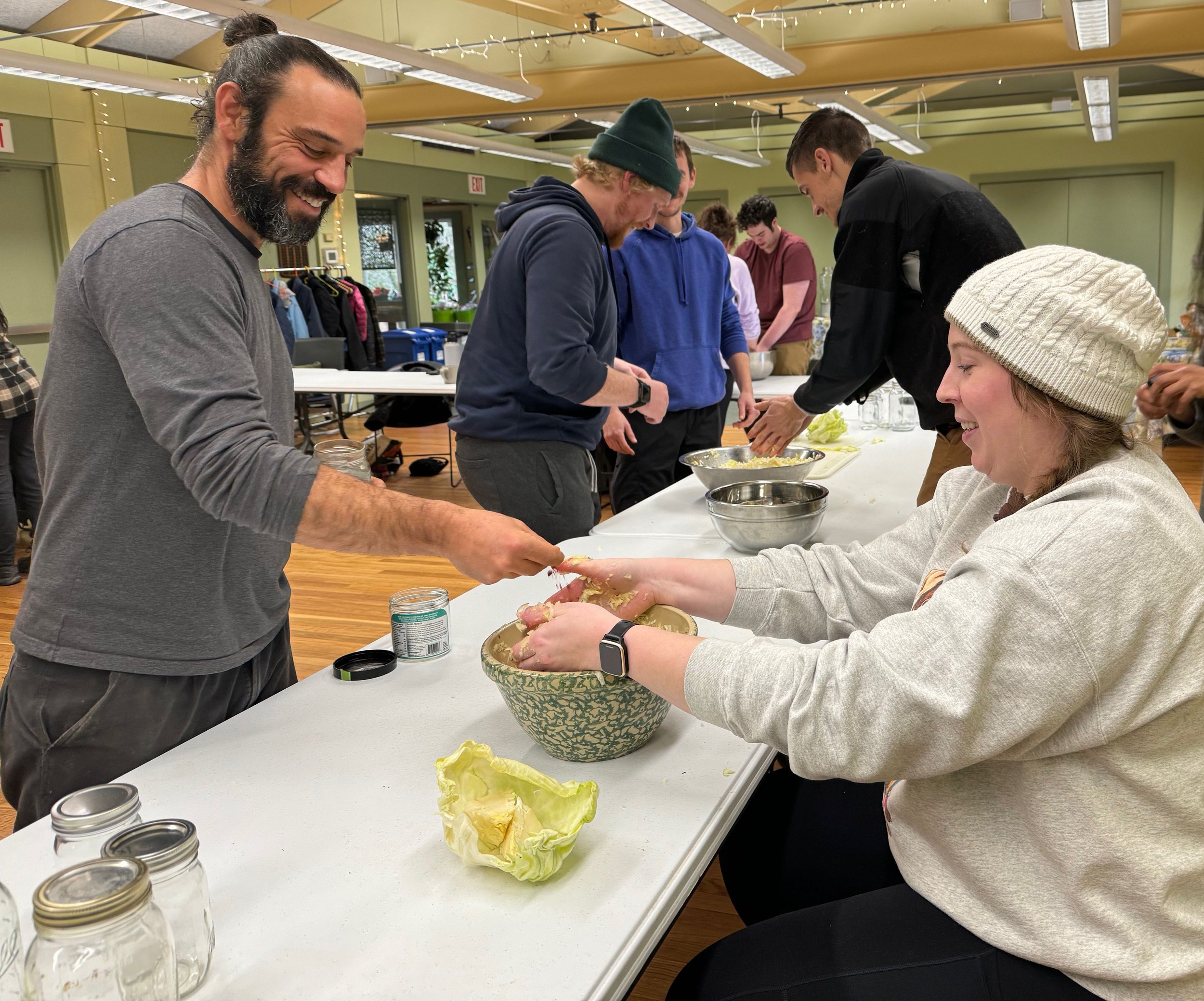
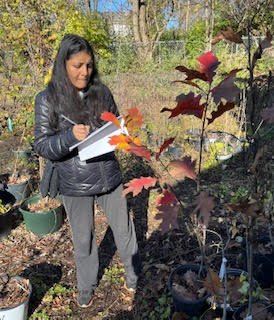


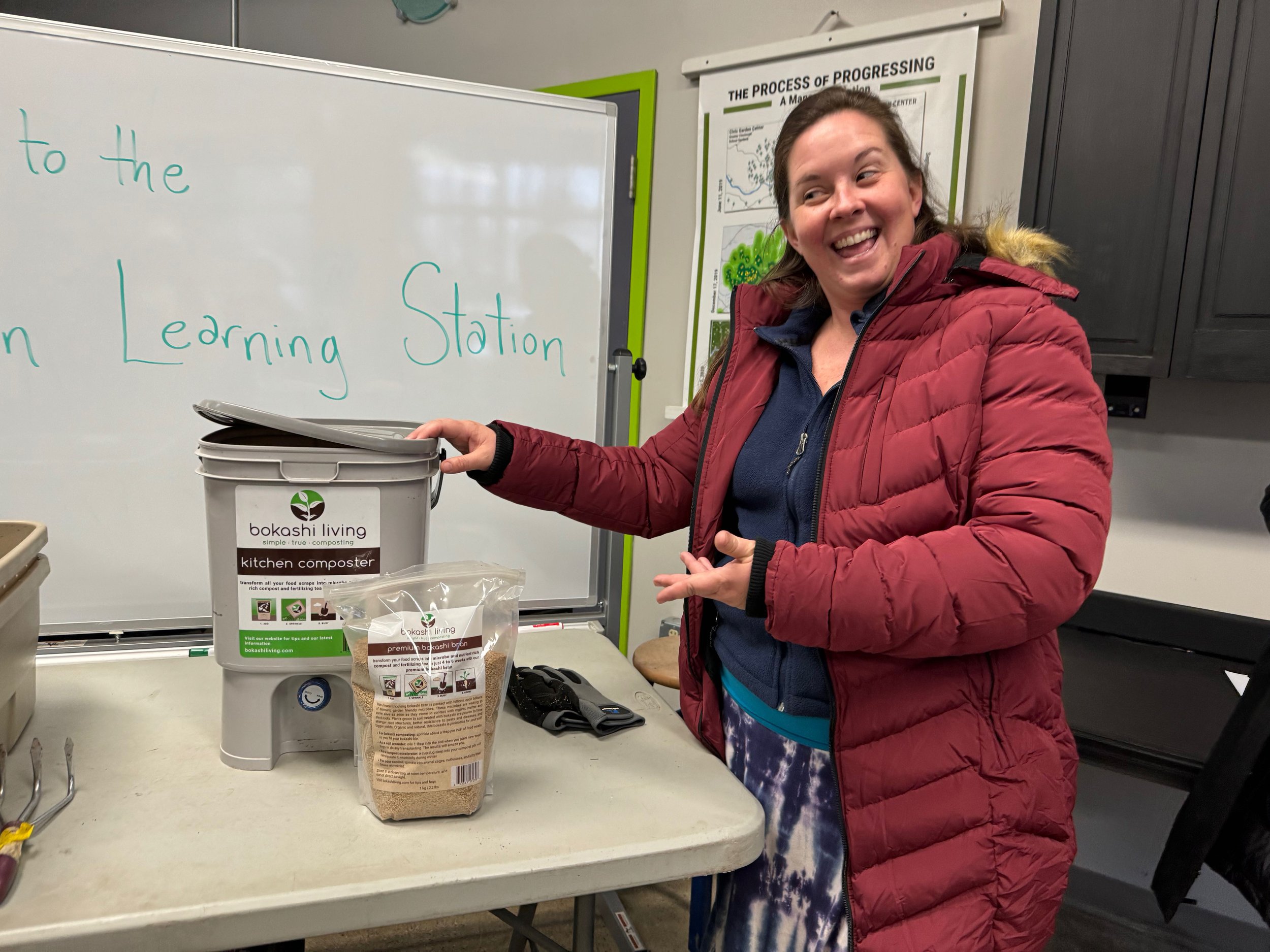
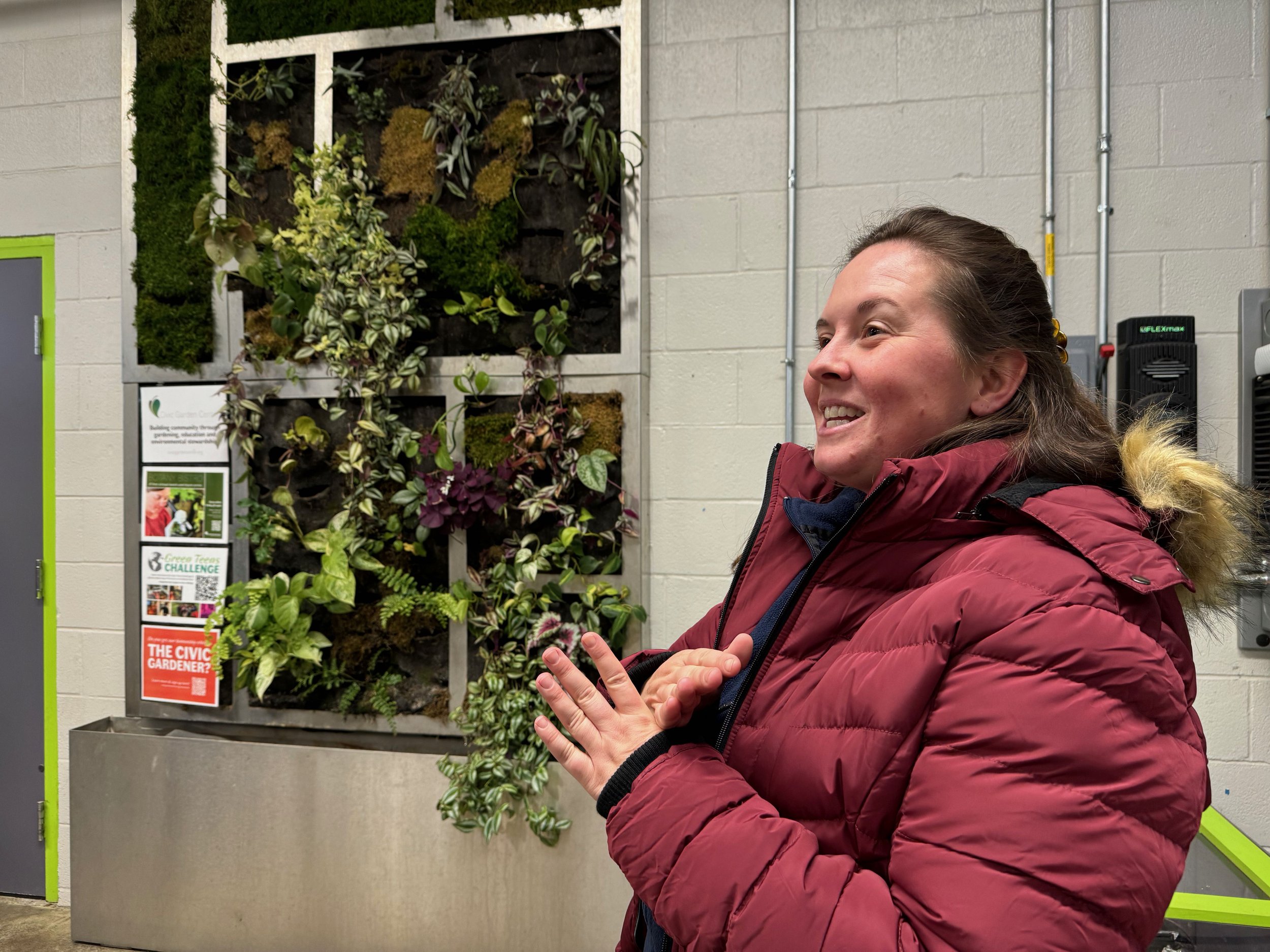
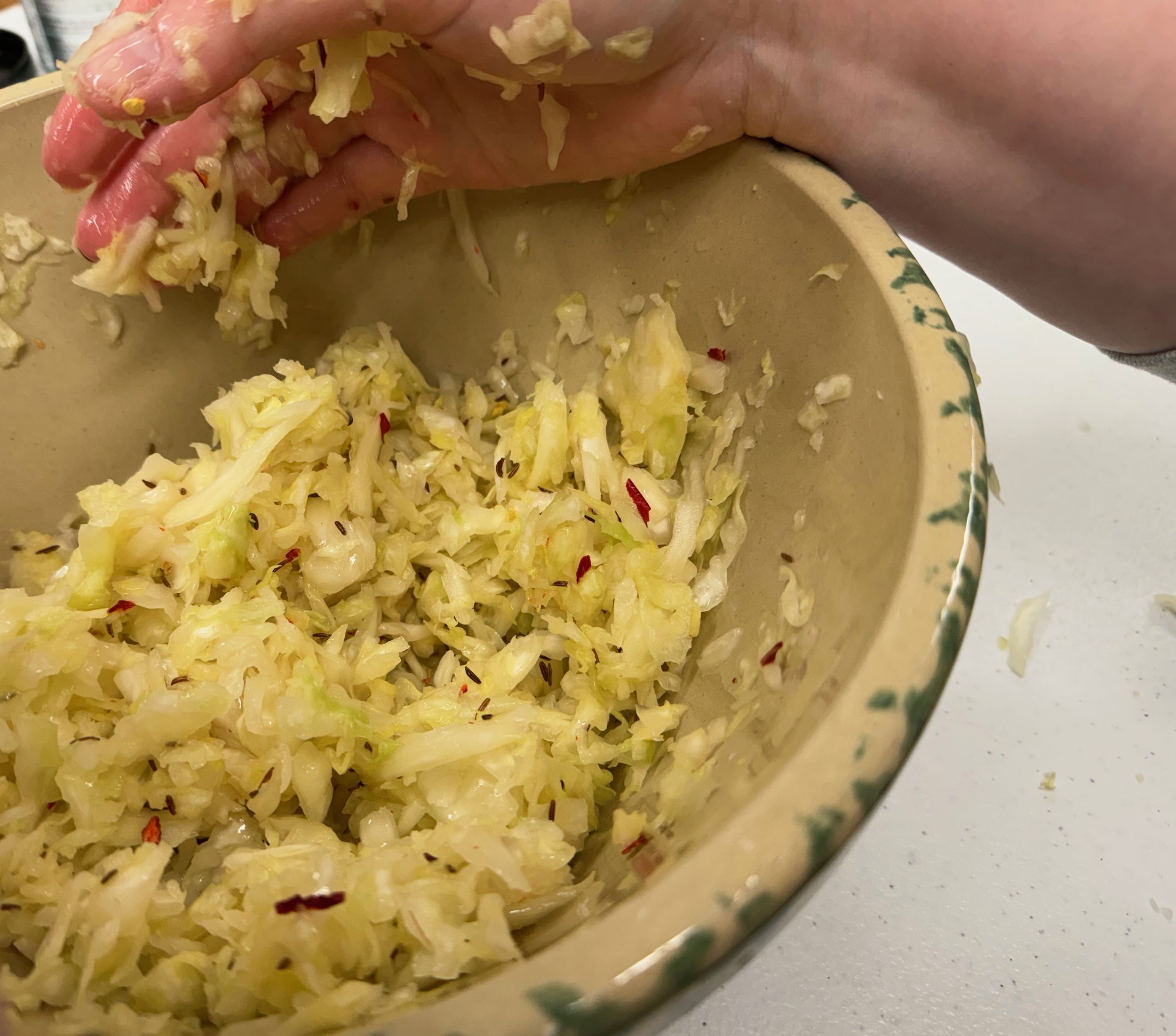
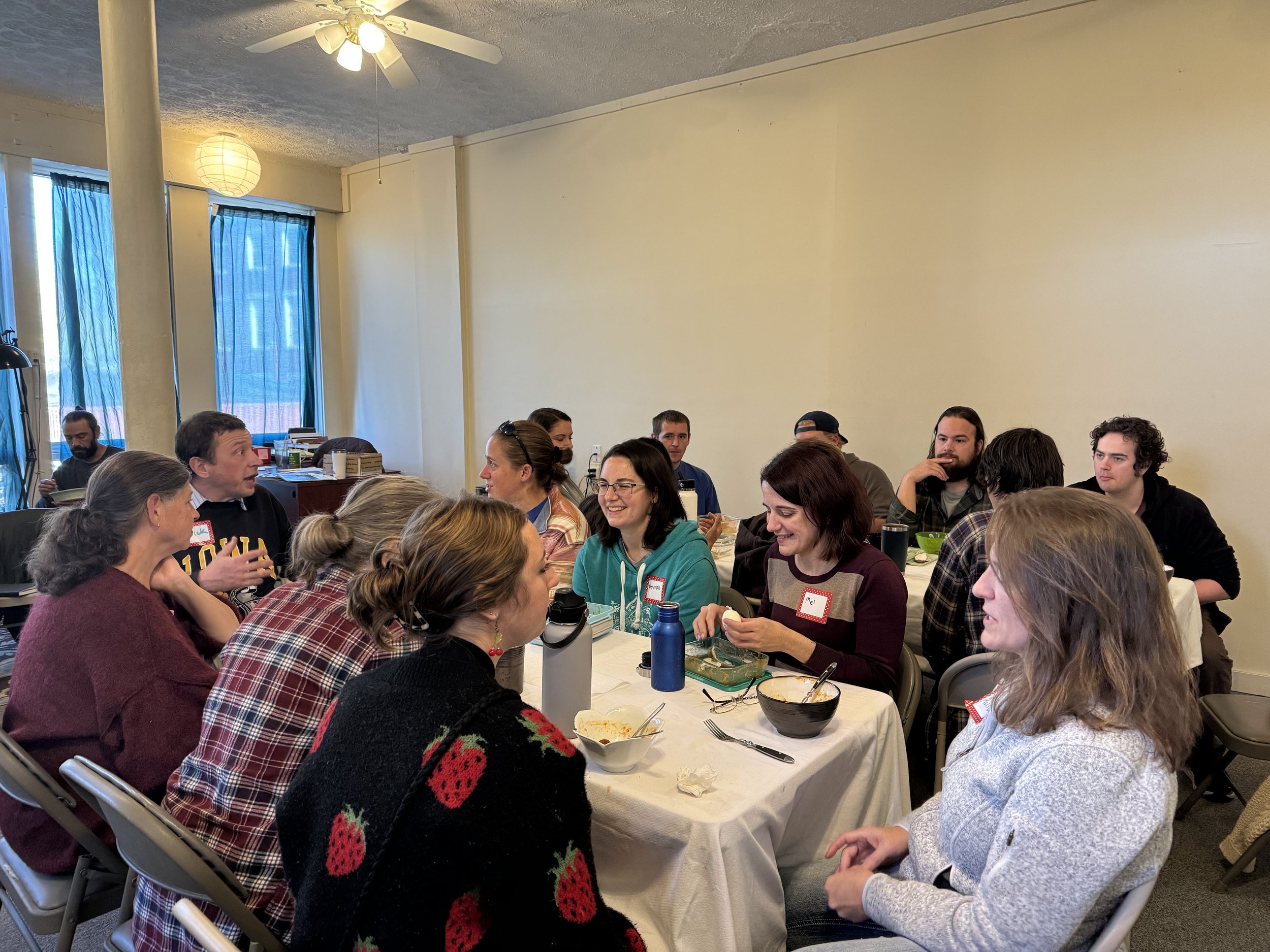
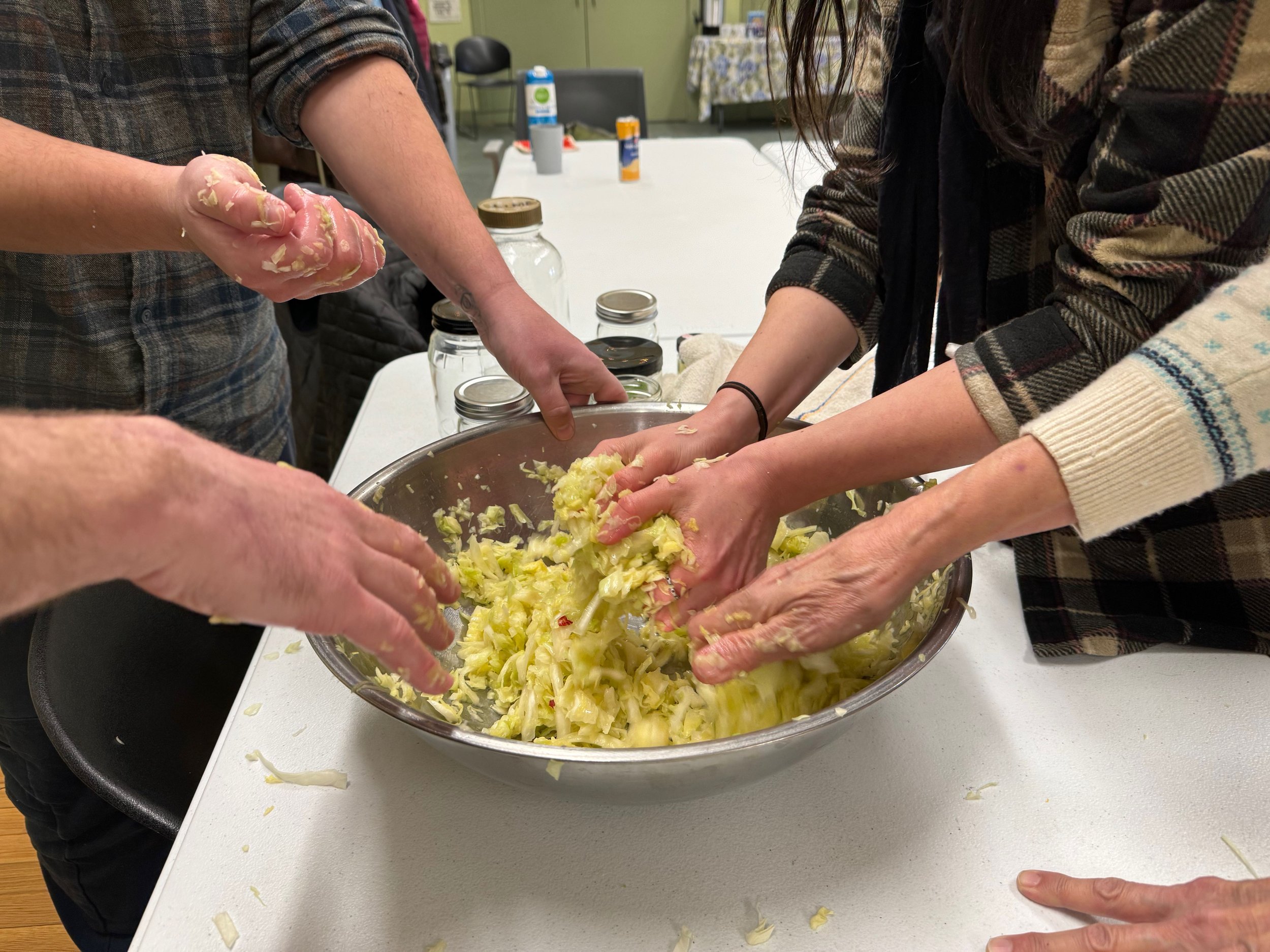

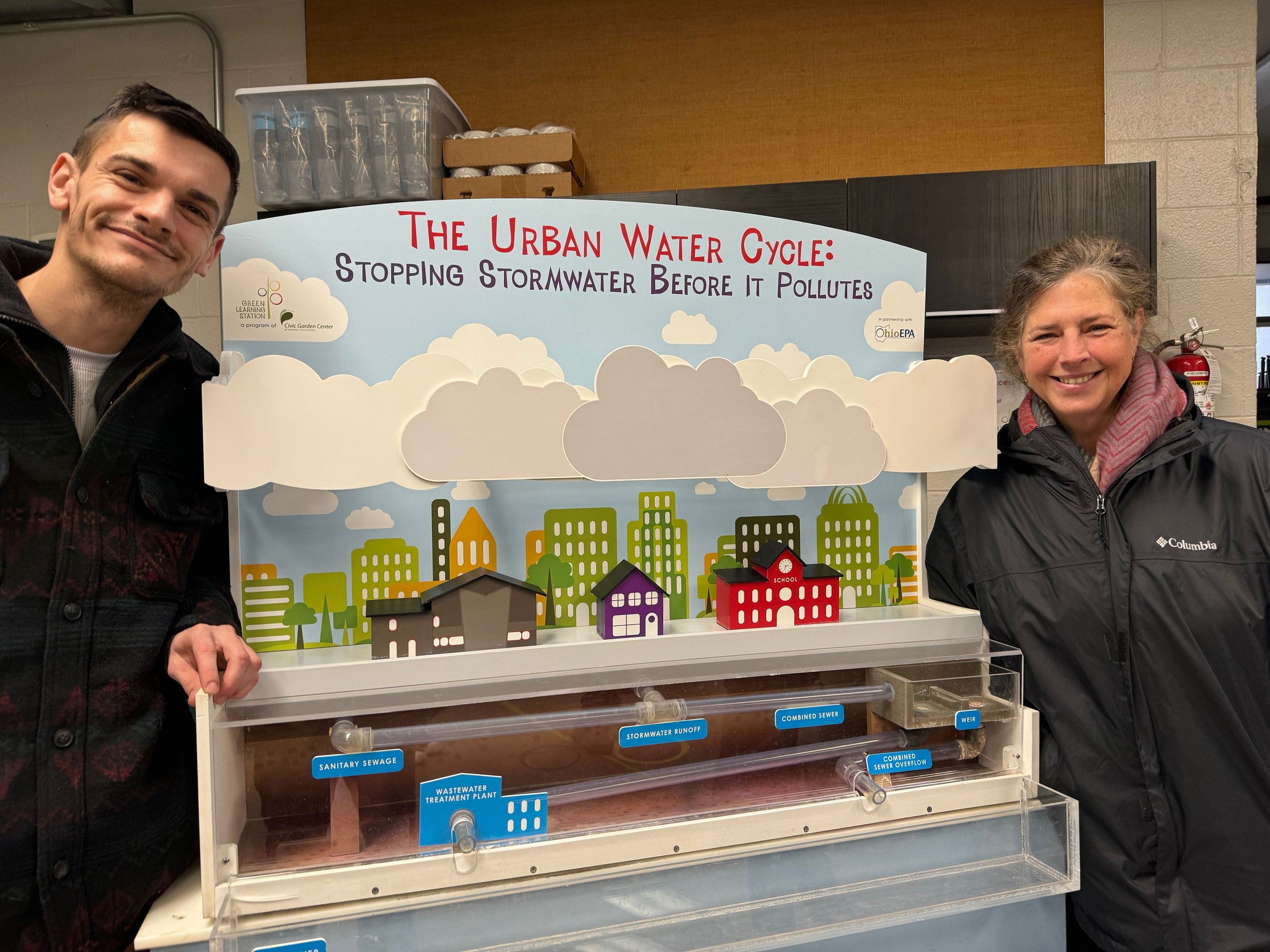
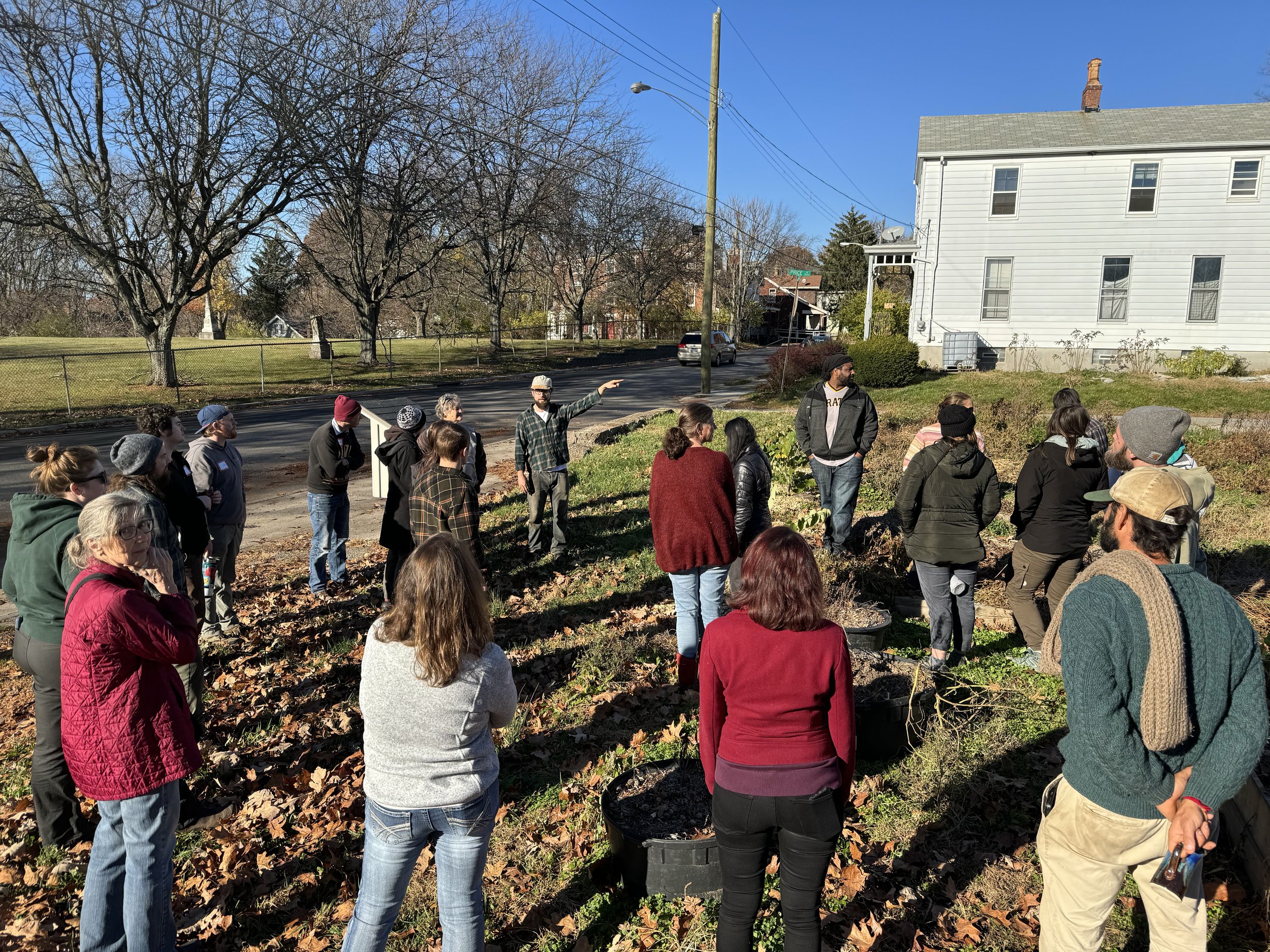
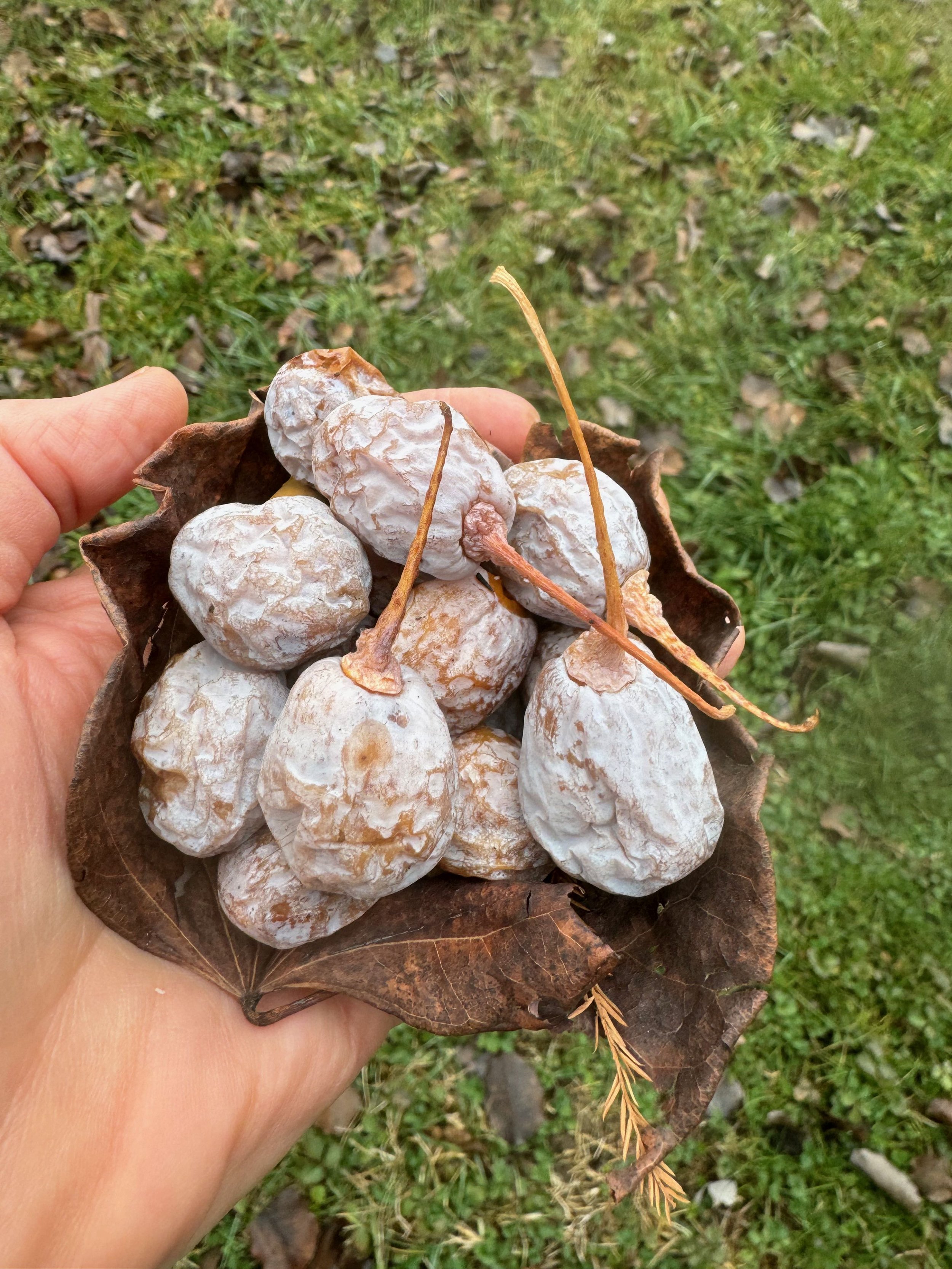


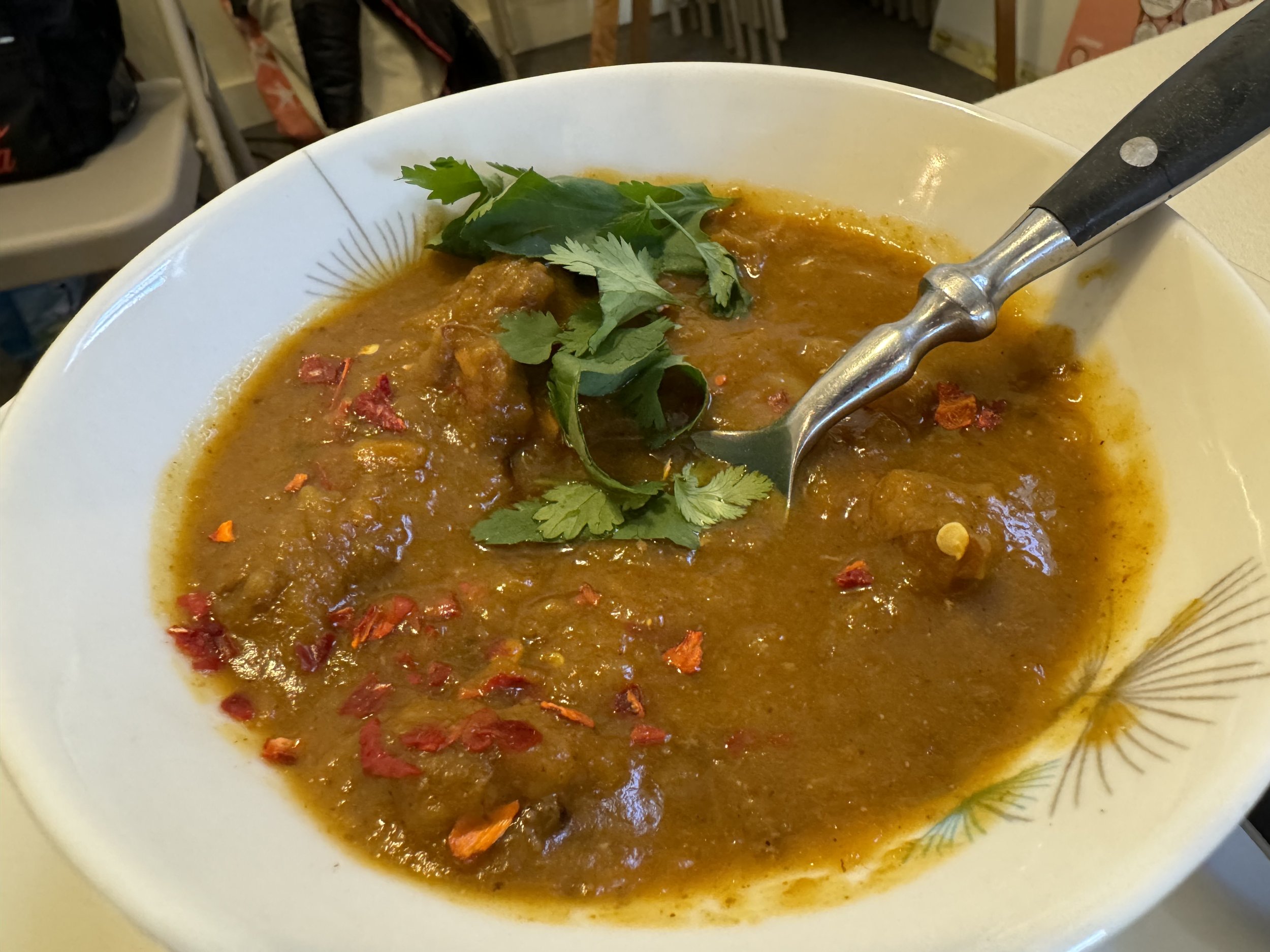

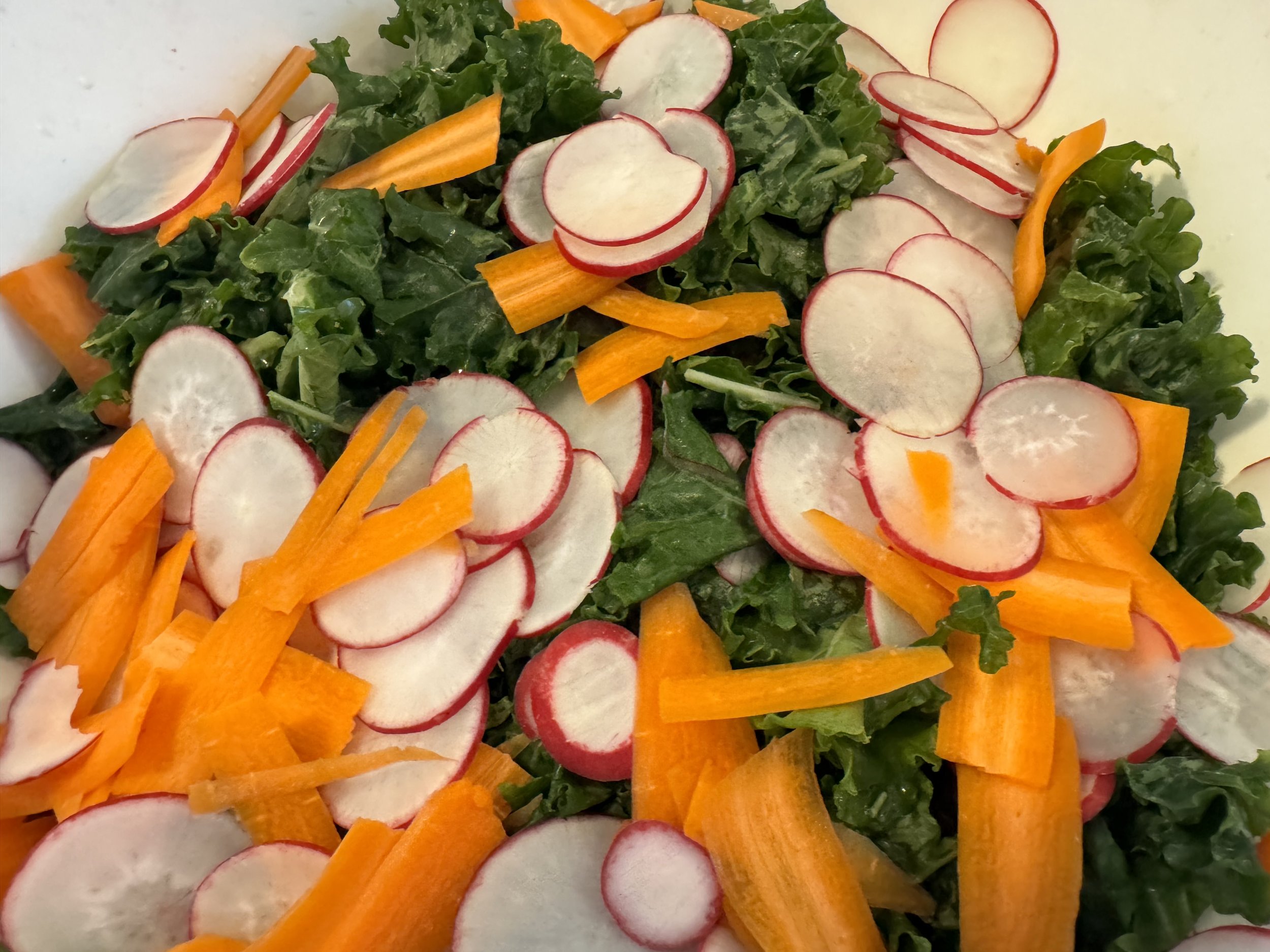
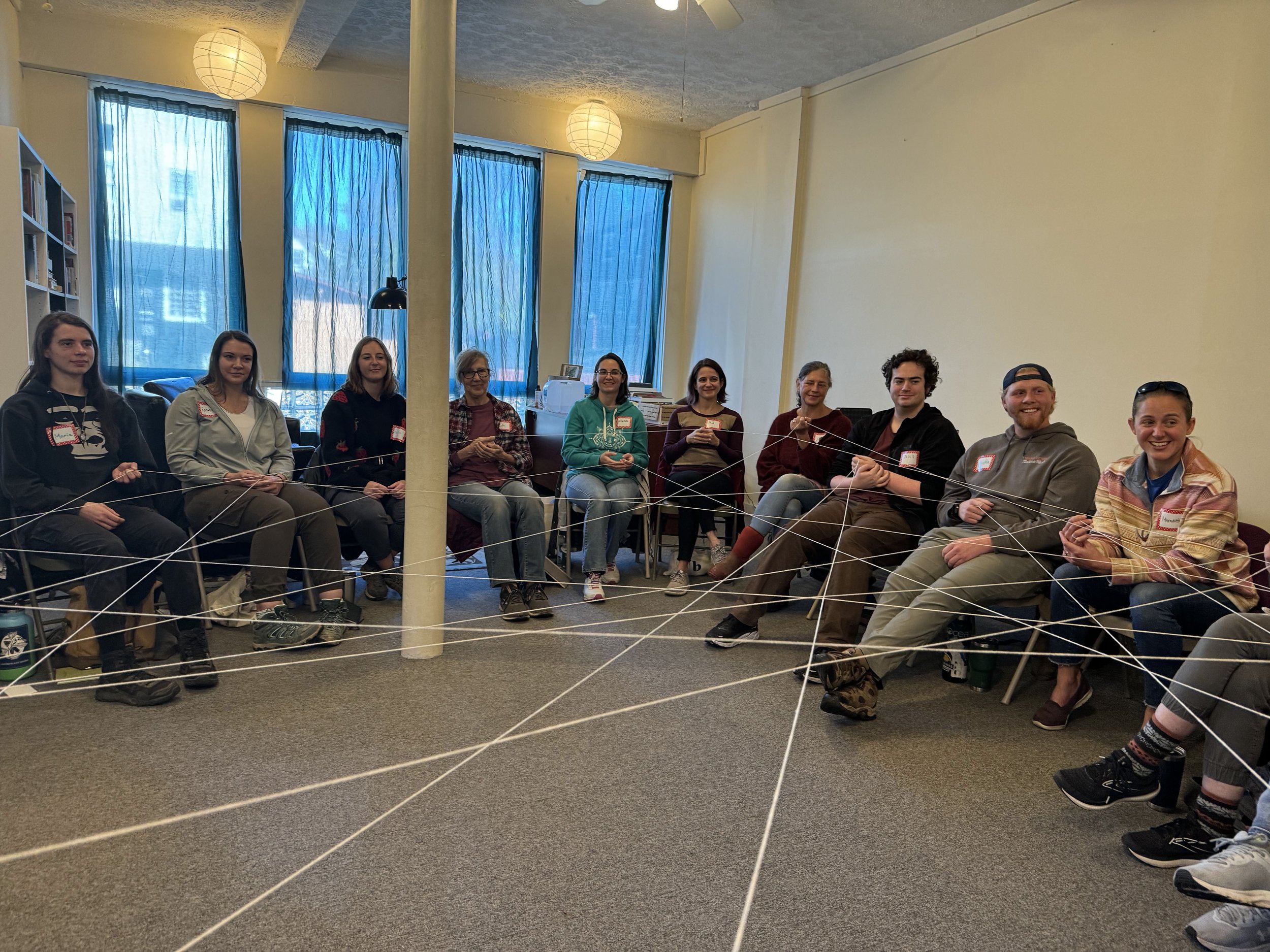

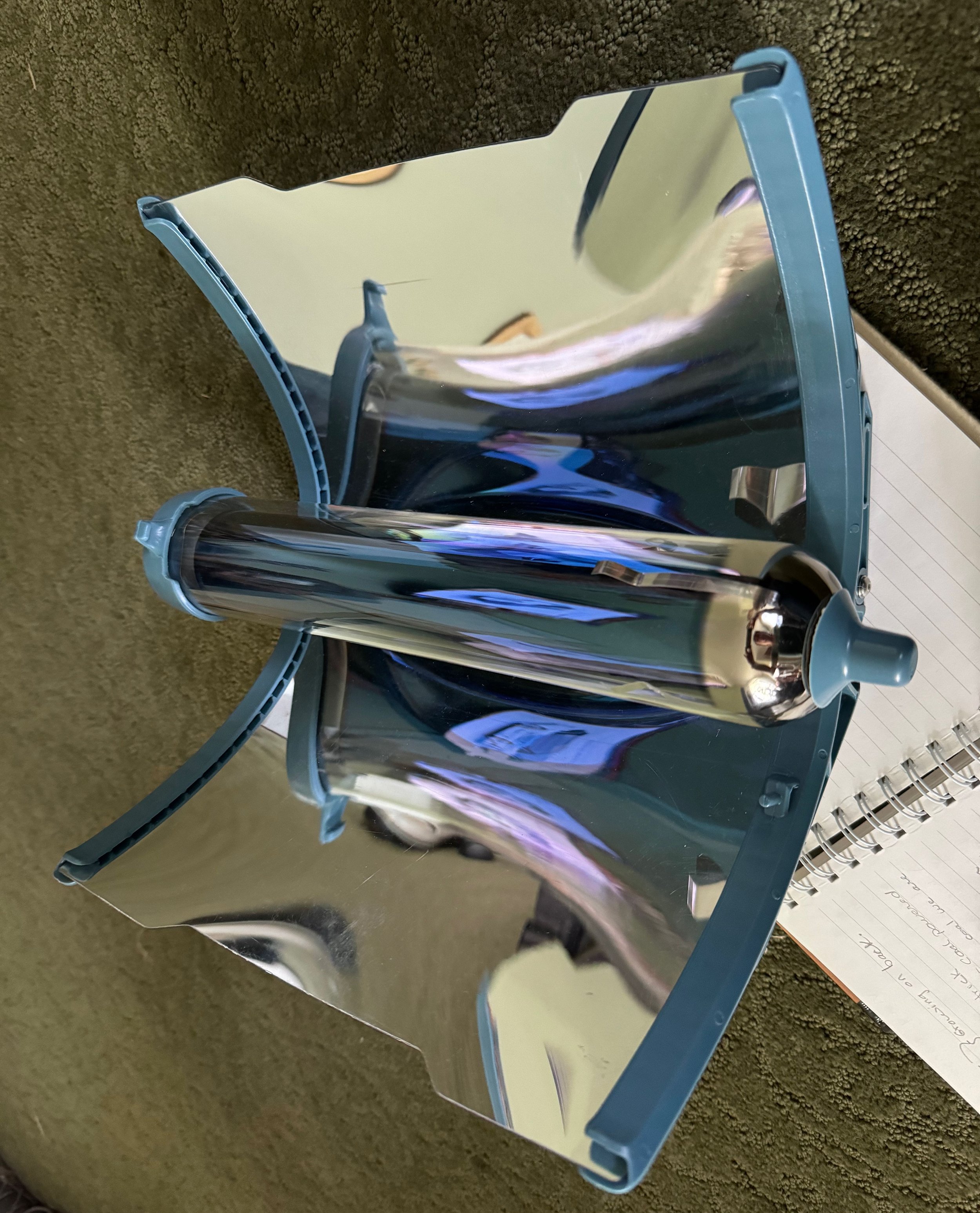
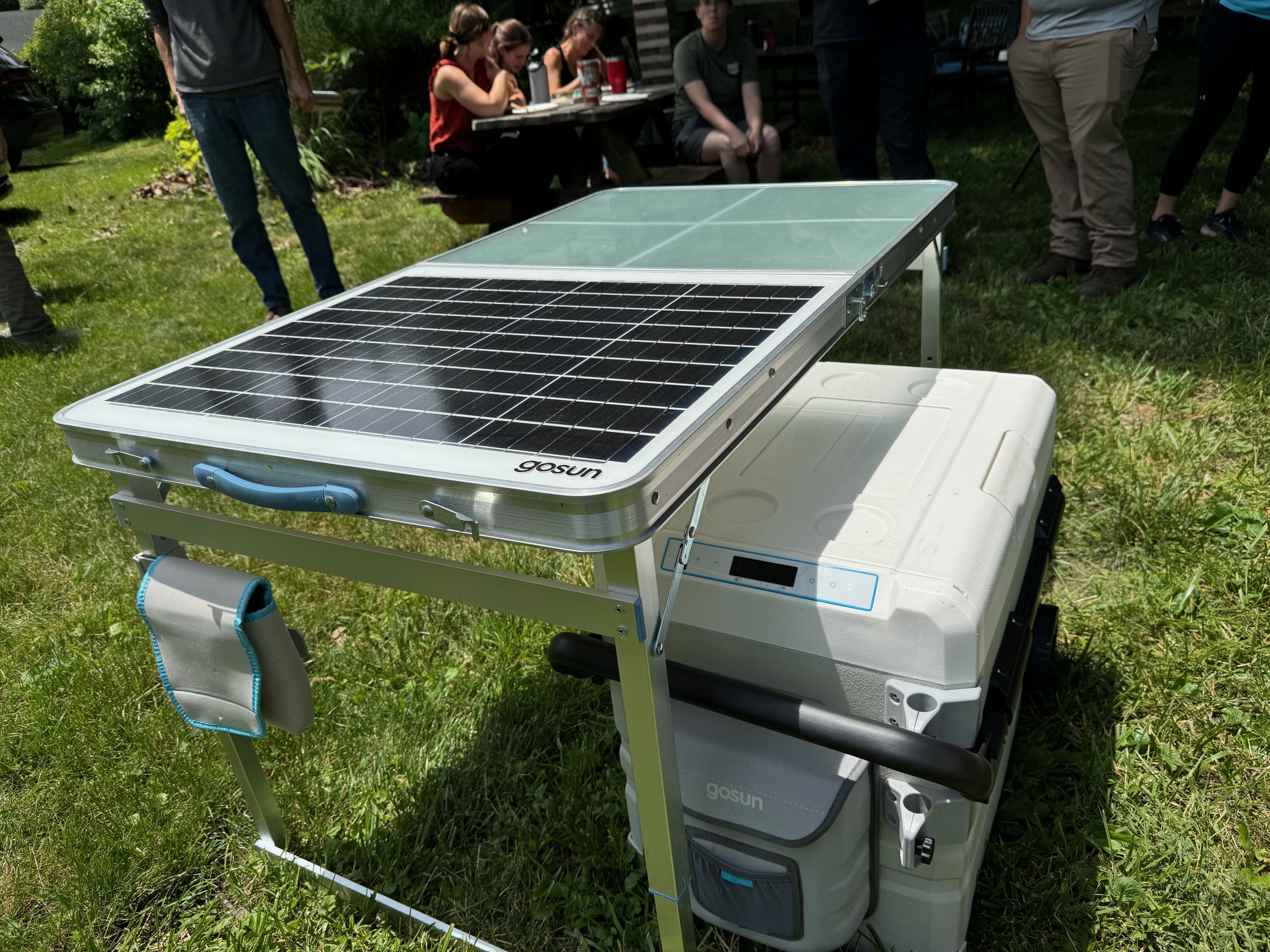
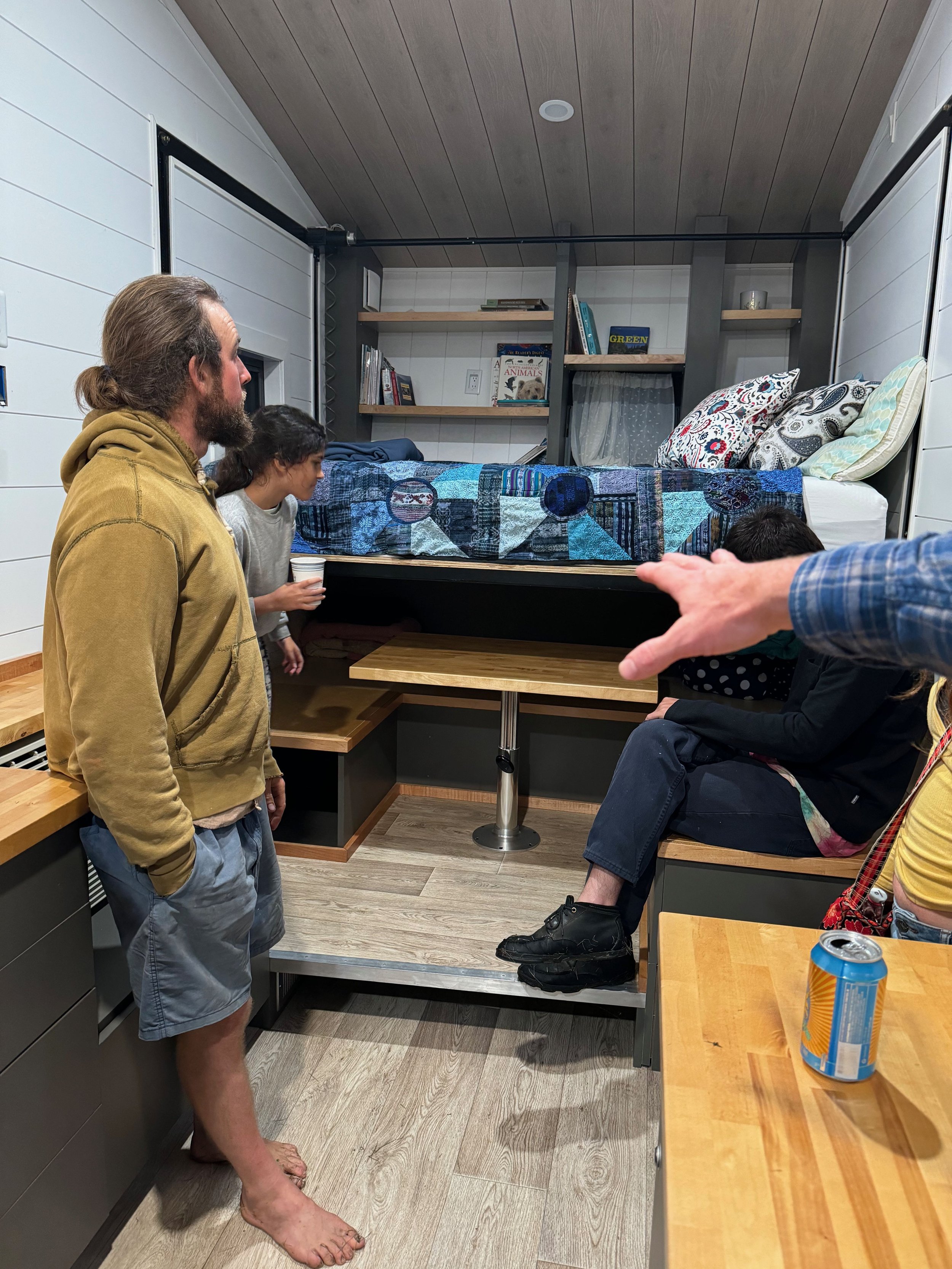
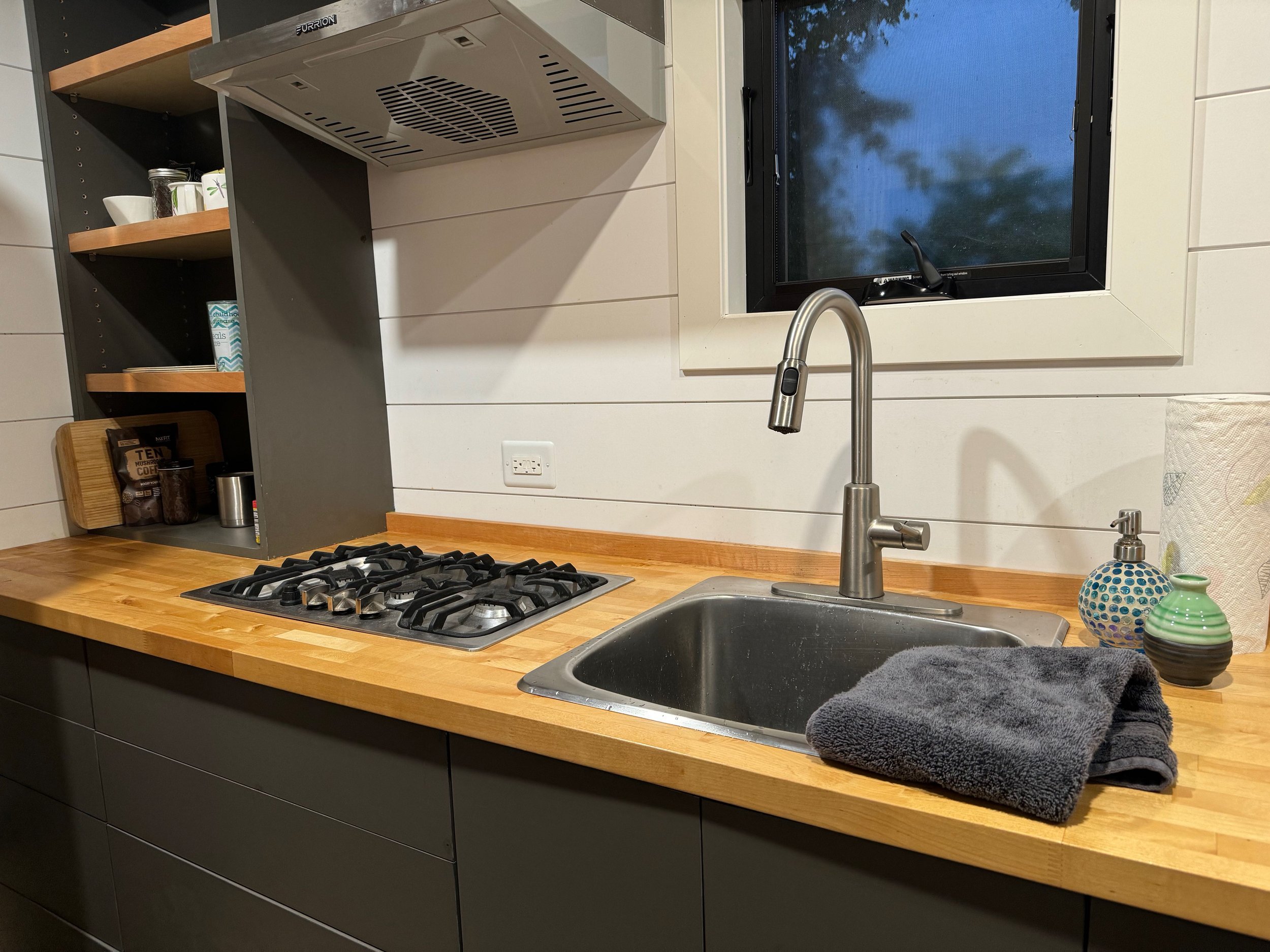
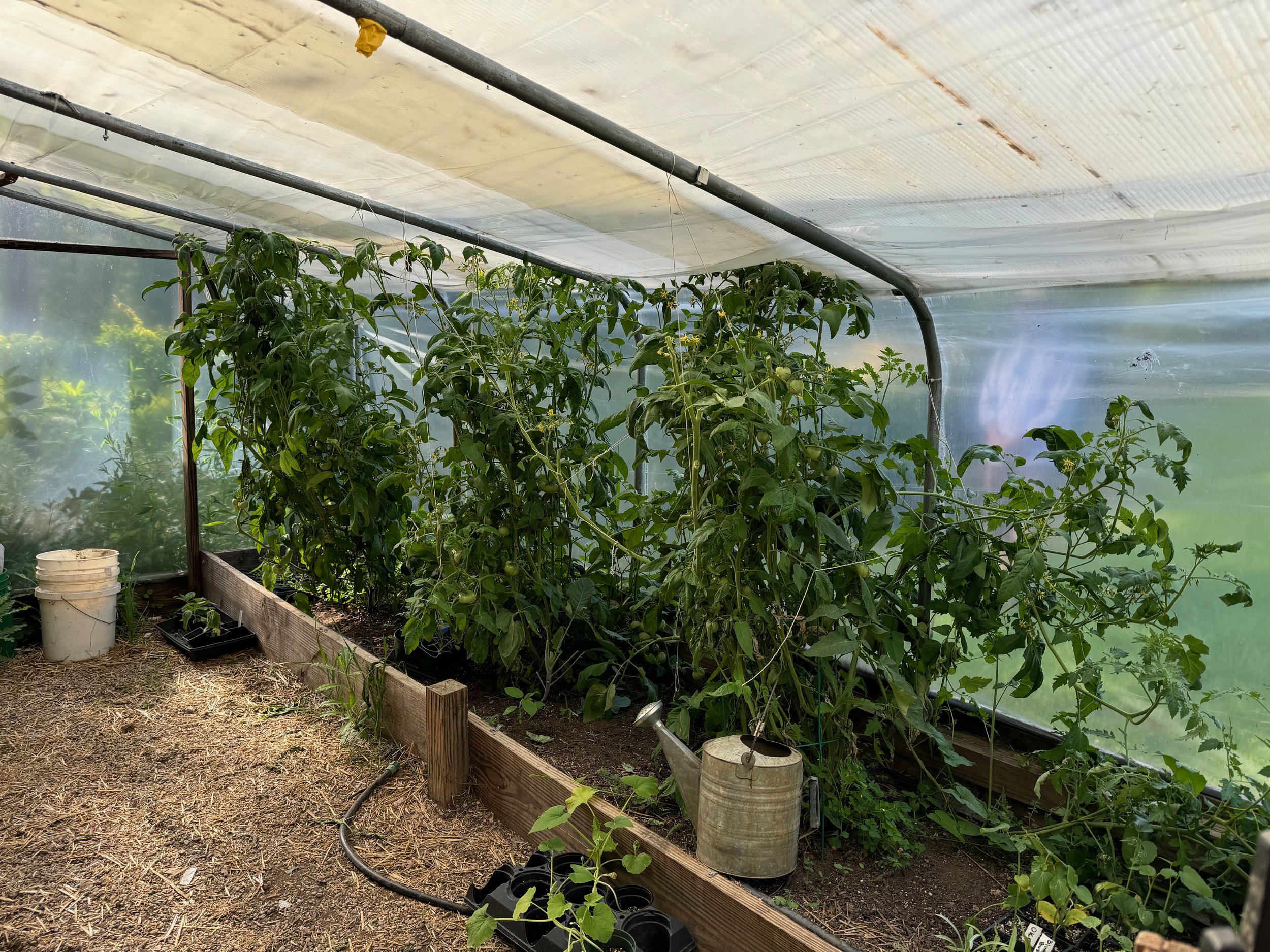
cpi SEASONAL permaculture intensives
CPI has been offering two shorter seasonal courses, one in the winter and one in the summer. We say shorter, BUT - it’s the same 80 hours of material, condensed into just a few weekends of the year.
The Winter Weekend PDC takes place over 5 weekends spanning February to March. Host sites include Treasure Lake in Northern Kentucky (lead teacher: Doug Crouch of TreeYo Permaculture) and Ande the Elf’s homestead in SE Indiana (lead teacher: Ande Schewe). Classes convene on Saturday and Sunday each weekend, for 7 hours of in-person instruction, supplemented by online recorded lectures and reading. Students complete a design project using the host site as their testing ground.
The Summer Weekend PDC is even shorter, at 3 consecutive weekends, and has a hybrid format: Friday evening online lectures followed by Saturday and Sunday onsite. This class is offered in July and hosted at Antioch Farm in Yellow Springs, Ohio, in partnership with Antioch College. Dormitory lodging is available. Students use the Antioch College campus for their design projects. A mix of CPI and Antioch instructors and speakers lead this course.



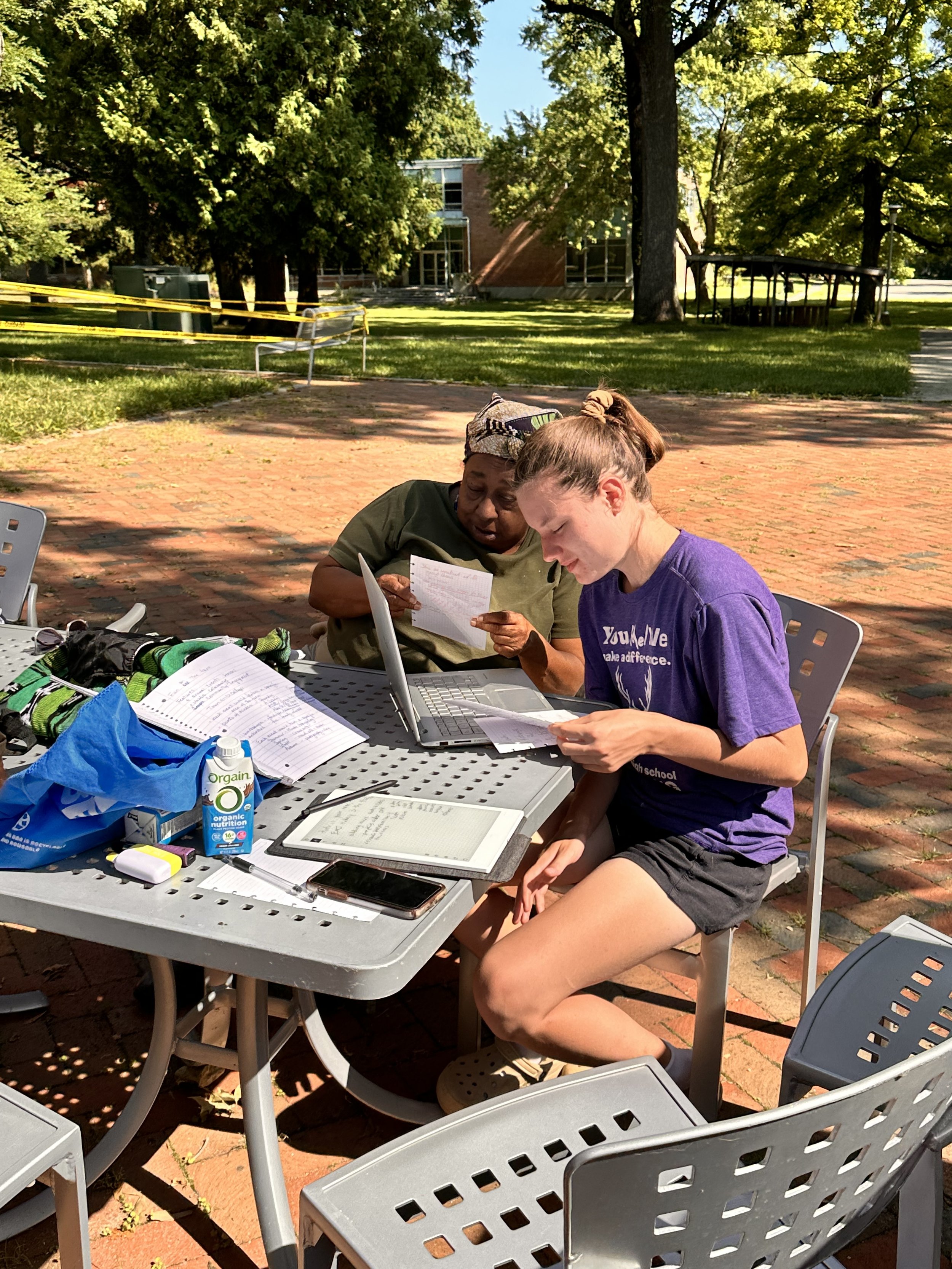







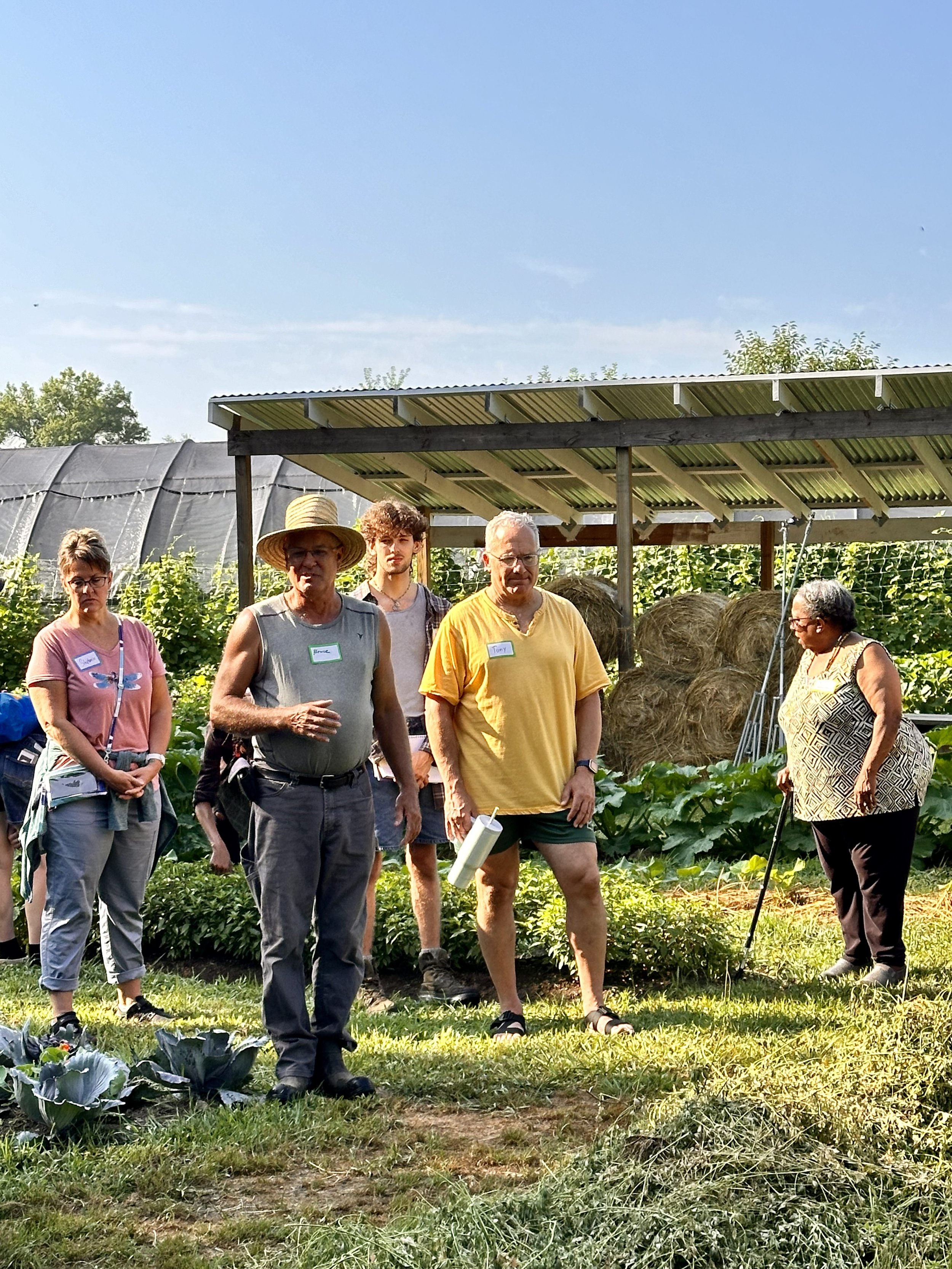

What’s Different, What’s the Same?
A key difference between the Yearlong and Intensive courses is how much time you are given to work on and complete your design project. In the yearlong course, students spend 6-7 months with their design site - observing, researching, consulting with the site owner, visiting and taking photos, and seeing how conditions change through the year. In the intensives, projects are wrapped up in a few weeks - but, you’ll be at the design site for every class, which can be an advantage.
The amount of travel you have to do is similarly spread out for the yearlong and condensed in the intensives. Because these classes are so experiential, it’s difficult to make up any lost time outside of class, so you’ll want to choose the format that best aligns with your availability to attend!
What they have in common is the access to CPI’s network of practicing permaculturists, our online library of resources, and our edible perennial nursery in Price Hill, Cincinnati — benefits that you retain long after graduation! As much as we try to fit into them, our courses serve as an introduction to begin your permaculture journey, equipping you with the right skills to start off strong.
Our hope is that you come away not only with the ethical, connective principles that govern permaculture design, and the ability to get from ideas to implementations, but maybe some inspiration about what your niche in the ecosystem will be. A gardener? A farmer? An educator? An advocate? An innovator? A healer? Under the umbrella of Earth Care, People Care, and Fair Share are dozens and dozens of specialty disciplines that, connected together, create a resilient permanent culture.
Financial Assistance
If tuition is a barrier, please reach out to us. Payment plans are available, and we can sometimes offer a work-trade agreement for reduced tuition.
There are many free resources to learn permaculture online and remotely. What you’ll get from CPI’s classes, that you won’t from those, is the hyper-local focus on the Cincinnati and Great Lakes region. This is permaculture for your backyard.
From the Earth Care perspective, we’re digging into local soils, plants, and wildlife, working with local weather patterns, and connecting you to local resources for soil testing, compost, and plants. This is knowledge you’ll be able to take home and apply immediately.
From the People Care perspective, our roster of local teachers, authors and presenters runs deep, and we’re always speaking to new subject matter experts on how to incorporate their wisdom into the curriculum. You won’t find a better way to kick-start your networking, meet like-minded and passionate people, and dig in to where the ecological work is happening in Cincinnati.
From the Fair Share perspective, we strive to keep our course costs down while also fairly compensating our generous contributors, many of whom welcome 15+ strangers into their private homes for an entire day every year. As a traveling classroom, we are grateful for the privilege of such a diverse network of local permaculture demonstration sites to showcase in our class — as well as the locally sourced organic produce and meals our hosts often provide!
We are also constantly collecting and reviewing feedback during and after every class to make improvements as we go, all to give you the most value possible out of your tuition investment.
THINKING ABOUT IT?
Enrollment typically opens 3-4 months ahead of the class start date. If you’re on the fence or would like to hear more before deciding, reach out us by phone or email. We’d be happy to put you in touch with some of our alumni or any of our teachers to get your questions answered.

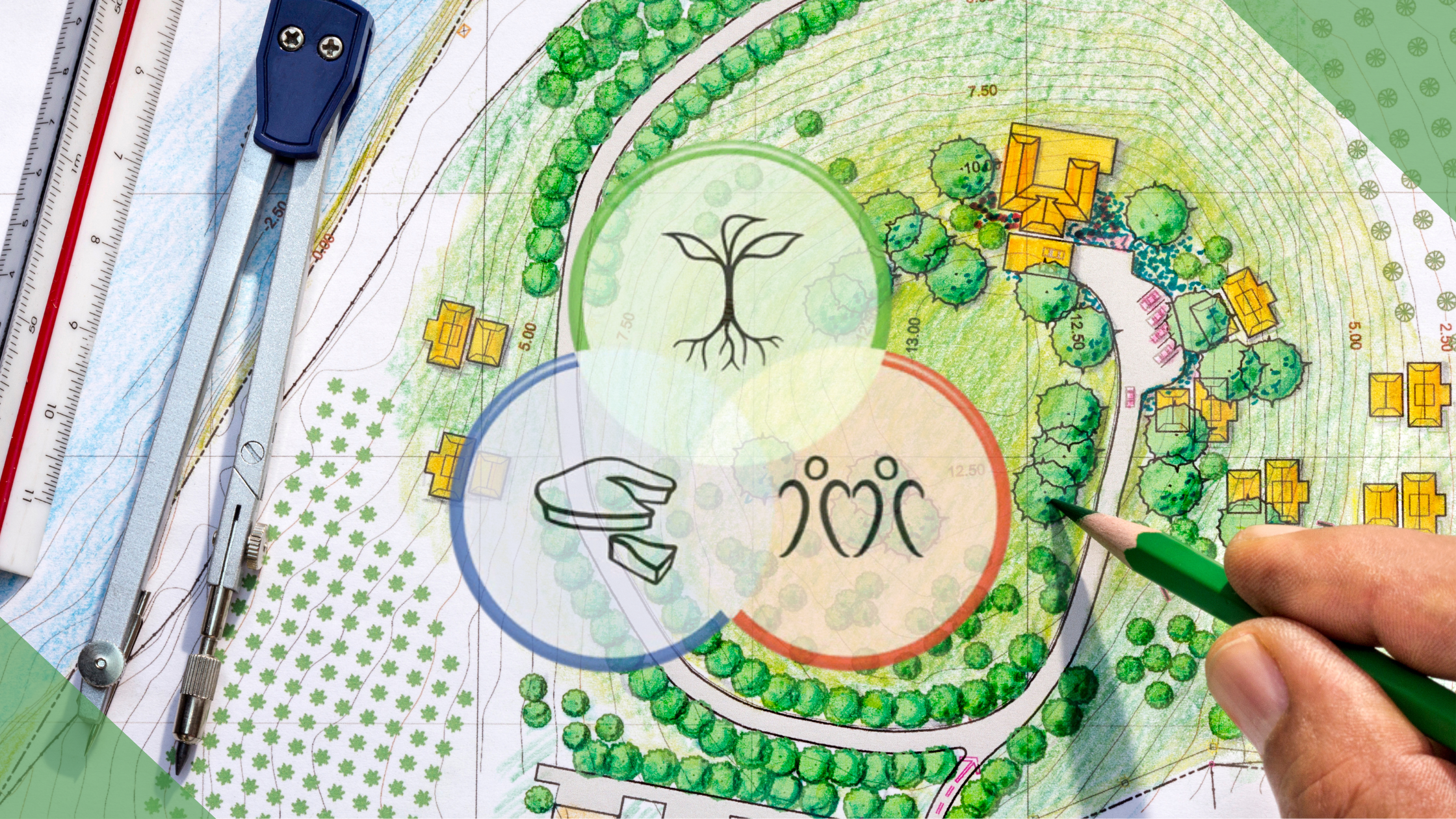

![Rethinking the American Lawn: Growing Beyond Nostalgia [Op-Ed]](https://images.squarespace-cdn.com/content/v1/55a2e7c1e4b07c31913b6c3b/1756330363843-YIAHRE2POVO7GBMR5B5P/20230708_135927-2.jpg)




